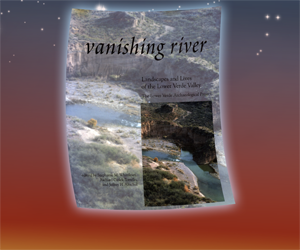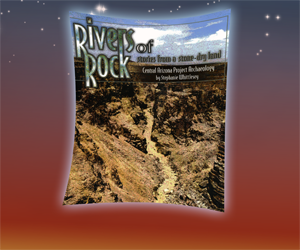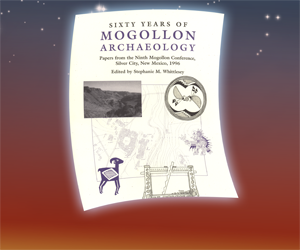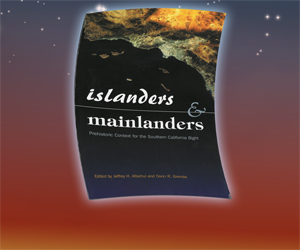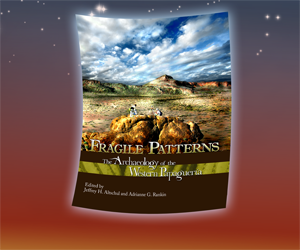Old Yuma: An Archaeological Testing Program of Twelve Downtown Parcels
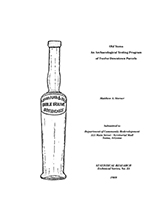
By Matthew A. Sterner
Technical Series 23
90 pp. / 1989
The following document presents the results of an archival search and archaeological testing program conducted by Statistical Research under contract with the City of Yuma, Office of Community Development (Purchase Order No. 12654). The purpose of the investigation was to identify and evaluate cultural resources which exist on 12 city-owned properties in the downtown Yuma area. These lots include parcels 32A, 21A, and 23B on city block 11 (the 100 block between Main St. and Madison Ave.), parcels 3A, 4A, 5A, 6A, and 7A on city block 10 (the 100 block between Main St. and Gila St.), parcel 44B on city block 14 (200 block between Madison Ave and Main St.), parcel 45 on city block 15 (200 block between Main st. and Maiden Lane), parcel 80 on city block 18 (300 block between Maiden Lane and Gila St.), and parcel 102A on city block 20 (300 block between Madison Ave and Main St.).
The goal of the archaeological testing program was to provide the City of Yuma with information regarding the historical and archaeological significance of the properties at a stage early enough in the city planning process so that alternative mitigative strategies could be developed. From the results of the testing program, any identified cultural resources which would be deemed significant could be nominated for inclusion to the National Register of Historic Places, or recommendations could be made regarding the significance of the parcels in the form of further study or avoidance. In conducting this project, there are several research goals which focused the investigations. These were: (1) to define the temporal relationship of recovered materials to current historical data from the area, (2) to generate a greater understanding of the downtown area in the growth and development of the City of Yuma, (3) to compile and assess as much information as possible in determining the necessity for future work in the downtown area.
To meet these goals, the field investigations were divided into two phases. The first was an effort to research and document any and all archival materials which dealt with the parcels to be studied. This included researching materials held at many of the major repositories housing information on historic Yuma, including the Yuma County Courthouse, the Arizona Historic Society Tucson, the Arizona Historic Society Yuma (Century House), the City of Yuma Parks and Recreation, the Yuma Crossing State Park, the Bureau of Land Management Yuma District, the Bureau of Reclamation Yuma Projects Office, and the University of Arizona Map Collection, Tucson.
The document search incorporated a diverse spectrum of materials and sources. Maps and photographs were obtained from several sources indicating the placement of historic structures on some of the parcels. Newspapers and Directories of Businesses were accessed indicating the presence of businesses and residents in the areas of question. The Assessor’s Office in the Yuma Courthouse provided information of land sales and transactions which further aided in the identification of persons or businesses in areas of historic Yuma. Other bits and pieces of information were gleaned from a variety of sources which aided in the possible identification of areas of the downtown. Finally, conversations with informants aided in the analyses presented in the following pages.
\
The second phase of the field investigations involved subsurface testing of the parcels. Due to time and budgetary constraints, complete subsurface testing of all of the parcels was not possible. Thus, at the discretion of the Project Director and based on compiled historic data prior to physical testing,parcels were prioritized and tested within the constraints imposed.

